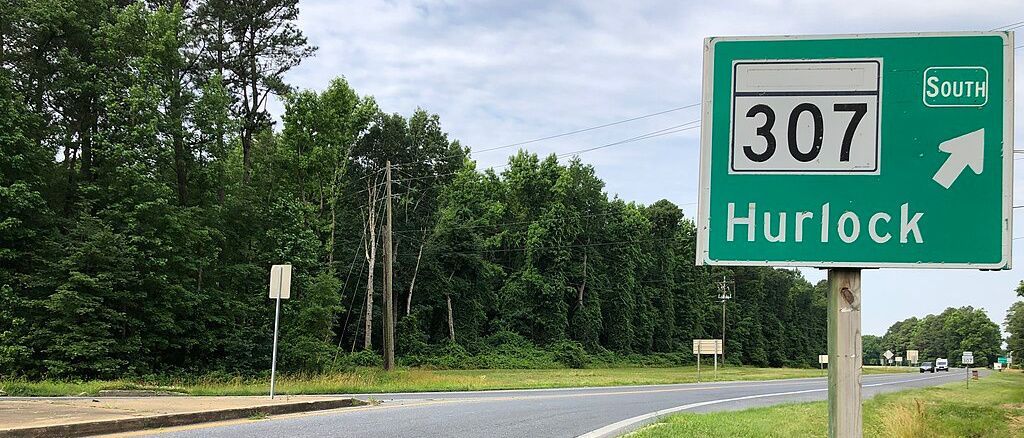Black Farmers in Delaware, Part 3: Two Farmers and Hope for the Future
Twenty-five years ago, Black farmer James (Tim) Harmon, a resident of Jimtown near Lewes, Delaware, rented farmland in Rehoboth and Angola.
Through the years he saved to buy five acres of land, build a house and a shed to house three combines, five tractors and attachments, and trucks for hauling grain. He now owns and rents 225 acres in Sussex County where he grows corn, soybeans, barley, and wheat.
Having no formal agricultural education, Tim worked with and learned from his father and his uncle. His father rented farmland in Rehoboth, Oak Orchard, Millsboro, and Milton. Tim learned to repair all equipment. His son, who works full time, helps during planting and harvesting.
As a Black man, he applied for only one federal loan about five years ago and did not experience any discrimination.
Surrounded by upscale housing developments about one mile in all directions from his five-acre home, and in his late fifties, he is still not tempted to sell his property. And, he said, “God has blessed me. When farmland [I’ve rented] is sold, I have been able to find other farmland and been able to bounce back.”
Seventy-six-year-old Seaford resident, Chris Thompson, states, “I will hold on as long as I can.” Chris rents farmland in the Angola area. Last year, the owner warned there was a potential buyer. This year, until June, he wasn’t sure he could farm there. The owner finally allowed him to plant when the sale fell through.
“The ag industry is diverse, and although I have not been formally educated, most of what I have learned has been ‘hands on’ learning from my grandfather and father, from seminars, industry companies, and sharing information with other farmers.”
Other than a four-year stint with the U.S. Navy and working as a salesman, Chris has always lived and farmed in Sussex County. To pay for farming expenses and to supplement his farming income, he works for approximately nine months of the year at a feed mill and delivers fertilizer to farmers, often 12 to 16 hours a day in the early spring, and hauling vegetables in the summer to lower Sussex County farm stands.
Throughout his lifetime, he saved and paid cash for a combine, two trucks, and other equipment. “When I qualified for a commercial loan, the interest rate was too high.” When applying for a U.S. Department of Agriculture Farm Service Agency loan, he was questioned why he had no credit. He stated, “I never financed anything. I always paid cash.” Also, the FSA paperwork was extraordinary. “And I had to get a lawyer to do the title search, all expenses I couldn’t afford and still qualify. I never had a lender who required this.”
Thompson is proud of himself. He owns five acres and a home that is paid for. His daughter completed a University of Delaware Masters’ degree.
Justice for Black Farmers Act
The Justice for Black Farmers Act, 2023, initially introduced by Senators Cory Booker (D-NJ), Elizabeth Warren (D-Mass), and Kirsten Gillibrand (D-NY), addresses the long history of USDA discrimination against Black farmers that has resulted in the decimation of the Black farmers’ population in America today. The Act will create an independent civil rights oversight board, investigate reports of discrimination within the USDA, and provide oversight of Farm Service Agency County Committees. During the pendency of civil rights complaints, a moratorium will be placed on foreclosures.
One of the bill’s provisions is the Equitable Land Access Service, within USDA, to acquire farmland and provide up to 160-acre land grants to existing and aspiring Black farmers. Access to USDA operating loans and mortgages under favorable terms, successful planning, and legal assistance will be available to new Black farmers.
Delaware House Bill 297
Delaware House Bill 297, known as the Agricultural Opportunities Act, could be beneficial in addressing decades-long agricultural discrimination. The primary sponsors of HB 297, State Representative Sherry Dorsey Walker and State Senator Marie Pinkney, state the bill aims to include socially disadvantaged farmers, military veteran farmers, and beginning farmers in the agricultural decision-making process in Delaware and provide outreach to disadvantaged farmers to make them aware of programs to assist them.
The bill requires the Department of Agriculture, in collaboration with Cooperative Extension programs at Delaware State University and the University of Delaware, to create an agricultural training program. It also establishes an agricultural land lease program. Land owned by the State that is suitable for agricultural use will be identified. Priority for leases will be given to socially disadvantaged farmers, military veteran farmers, and beginning farmers. Current and prospective farmers of color will learn new agricultural practices and have access to funding, land, and education necessary to be successful.
Delaware’s farm statistics mirror nationwide statistics: there is a continued decline in the total number of farms, but a rise in the number of new and young producers.
Black farmers are less than 8% of the nation’s farm population. “That’s because a long list of discriminatory behaviors continues to plague them,” states Bill Spiegel in Successful Farming. He cites comments from an Alabama farmer that injustices and prejudices they face as Black farmers are numerous, including spending months straightening out incorrect invoices from input providers and waiting more than a year to obtain a critical disaster payment from FHA. Other discriminatory behavior includes excessive charges for supplies and getting approval by local banks or USDA for crop loans too late for the growing season, if at all.
Agriculture, the major industry in Delaware, is estimated to be worth $8 billion. Despite their unique situation that exposed them to political, economic, and social discrimination, Black farmers played, and continue to play, an important role in Delaware’s present-day development.
Jessica Clark is a graduate of the University of Maryland School of Journalism. After a 30-year career as a Public Information Specialist and photojournalist for several federal agencies, she retired to Georgetown, Del. She restored former Governor John Collins’ 1790s home on Collins Pond and is a Sussex County Master Gardener.
Common Sense for the Eastern Shore







